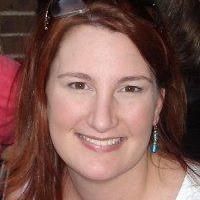CaPOW! Using Problem Sets in a Capstone Course to Improve Fourth-Year Medical Students' Confidence in Self-Directed Learning.
Date
2017-03
Journal Title
Journal ISSN
Volume Title
Repository Usage Stats
views
downloads
Citation Stats
Abstract
Problem
Despite the importance of self-directed learning (SDL) in the field of medicine, individuals are rarely taught how to perform SDL or receive feedback on it. Trainee skill in SDL is limited by difficulties with self-assessment and goal setting.Approach
Ninety-two graduating fourth-year medical students from Duke University School of Medicine completed an individualized learning plan (ILP) for a transition-to-residency Capstone course in spring 2015 to help foster their skills in SDL. Students completed the ILP after receiving a personalized report from a designated faculty coach detailing strengths and weaknesses on specific topics (e.g., pulmonary medicine) and clinical skills (e.g., generating a differential diagnosis). These were determined by their performance on 12 Capstone Problem Sets of the Week (CaPOWs) compared with their peers. Students used transitional-year milestones to self-assess their confidence in SDL.Outcomes
SDL was successfully implemented in a Capstone course through the development of required clinically oriented problem sets. Coaches provided guided feedback on students' performance to help them identify knowledge deficits. Students' self-assessment of their confidence in SDL increased following course completion. However, students often chose Capstone didactic sessions according to factors other than their CaPOW performance, including perceived relevance to planned specialty and session timing.Next steps
Future Capstone curriculum changes may further enhance SDL skills of graduating students. Students will receive increased formative feedback on their CaPOW performance and be incentivized to attend sessions in areas of personal weakness.Type
Department
Description
Provenance
Citation
Permalink
Published Version (Please cite this version)
Publication Info
Clay, Alison S, David Y Ming, Nancy W Knudsen, Deborah L Engle, Colleen O'Connor Grochowski, Kathryn M Andolsek and Saumil M Chudgar (2017). CaPOW! Using Problem Sets in a Capstone Course to Improve Fourth-Year Medical Students' Confidence in Self-Directed Learning. Academic medicine : journal of the Association of American Medical Colleges, 92(3). pp. 380–384. 10.1097/acm.0000000000001193 Retrieved from https://hdl.handle.net/10161/26113.
This is constructed from limited available data and may be imprecise. To cite this article, please review & use the official citation provided by the journal.
Collections
Scholars@Duke

David Yung Ming
I am a med-peds hospitalist and researcher with interests in improving systems of care of patients with complex health needs. My research focus areas include implementation science, population health sciences, community-engaged research, and digital health. My vision is to design, implement, evaluate, and scale programs and interventions that will simplify the delivery of complex care. By doing so, we can equitably improve the health outcomes that matter most to children and adults with complex health needs and their families.

Deborah Lynn Engle
I currently serve as the Assistant Dean for Assessment and Evaluation for the MD program and as Associate Professor of the Practice of Medical Education. My medical education expertise includes best practices in assessment, program evaluation, curriculum design and scholarship. My research interests focus on assessment of clinical skills, predicting learner performance across the medical education continuum, faculty development in medical education, and interprofessional education.

Kathryn Marijoan Andolsek
My career focuses on interprofessional medical education, and collaboration in community and population health. These are critically important areas with tremendous potential for creativity, innovation, and learning from one another. These are also strategic tools to advance health equity.

Saumil Mahendra Chudgar
Medical Education
Assessment of Clinical Skills
Clinical Reasoning
Simulation
Curriculum Development
Unless otherwise indicated, scholarly articles published by Duke faculty members are made available here with a CC-BY-NC (Creative Commons Attribution Non-Commercial) license, as enabled by the Duke Open Access Policy. If you wish to use the materials in ways not already permitted under CC-BY-NC, please consult the copyright owner. Other materials are made available here through the author’s grant of a non-exclusive license to make their work openly accessible.
